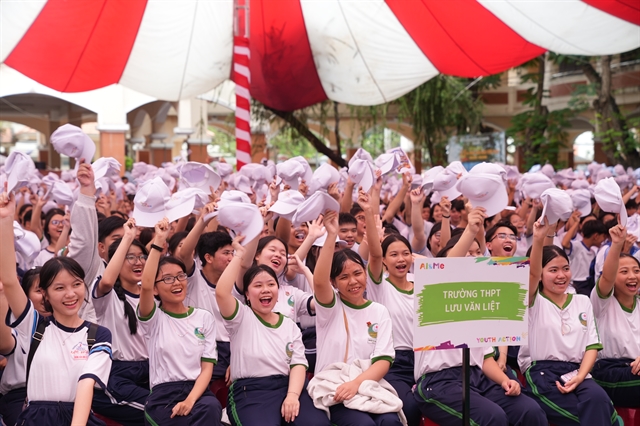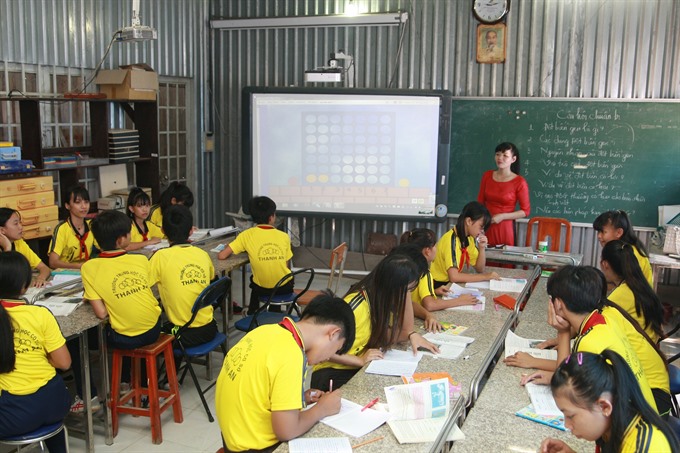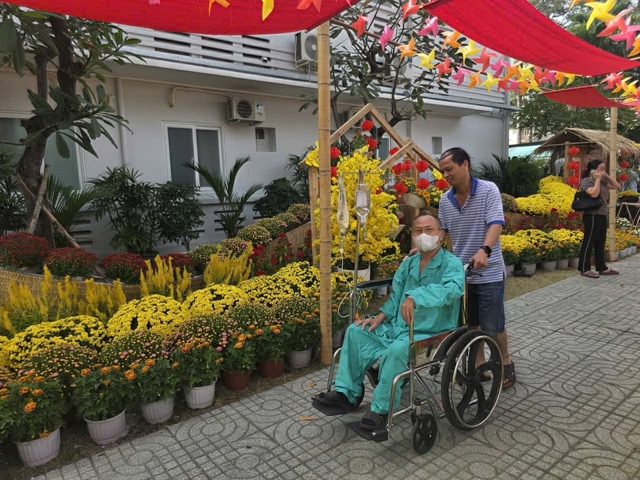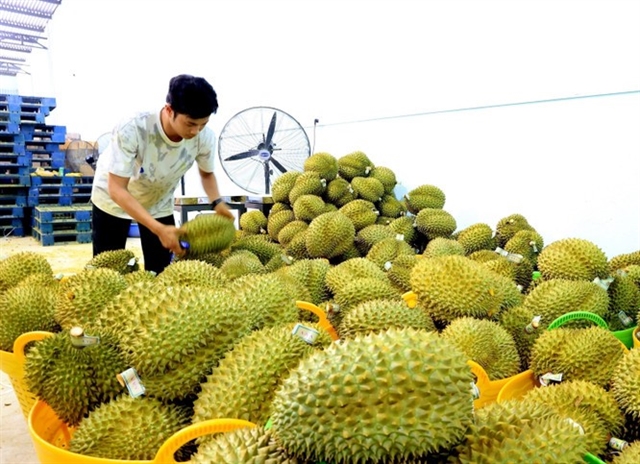 Society
Society

Seven years ago, teacher Cao Thị Thanh Minh left her comfortable surroundings in the north-central coastal
 |
| Biology teacher Cao Thị Thanh Minh in her classroom at Thạnh An Secondary School in HCM City’s rural Cần Giờ District. — VNS Photo Quang Châu |
Gia Lộc
The 29-year-old biology teacher was hired by Thạnh An Secondary School, the only secondary school in Thạnh An commune, which is bordered by mangrove forests, in Cần Giờ District.
Upon graduation from the
When she first arrived at the commune, located about 70 kilometres to the east of central
“During the first days of teaching, I was sad and homesick. I thought about giving up teaching altogether, and leaving this place, which had electricity generated from a diesel power station for only 18 hours a day,” Minh said.
Last year, however, the island was connected to the national grid.
“Three years of studying at the
When she saw the smiles on the faces of her students, her mood always lifted.
“Their smiles and their interest motivated me to stay and do a good job,” Minh said, adding that she began to slowly adapt to the new circumstances.
“Now, I don’t want to leave the peaceful life and pure air here, although some of my colleagues say that the City needs teachers and suggested that I apply,” Minh said.
The students in the commune are obedient and virtuous, and the parents, who are often poor, do not pay attention or care about their children’s learning, so the school’s teachers must fulfill that role, according to Minh.
Award-winning teacher
At the school, Minh follows a student-centred teaching methodology recommended by
In her classes, Minh often divides students into teams and assigns tasks according to different topics. In a lesson on roots of plants, for example, each team goes outdoors to identify the kind of root.
Last year, she won a consolation prize for a digital lesson plan she designed on integrating wildlife protection. The contest was held by the city’s education department in co-operation with the non-profit Wildlife at Risk (WAR).
In the 2014-2015 period, Minh was also named one of Cần Giờ District’s top 38 excellent teachers.
“To attract students, I try to make the subject more exciting. When my students are interested in the topic, they learn well,” Minh said.
Lê Minh Nhựt, deputy head of Thạnh An Secondary School, said that Minh was an enthusiastic, creative and proactive teacher.
She was also elected to the commune’s People’s Council, thanks to the trust and admiration of the students’ parents and other residents.
Educational development
Minh is one of 13 teachers in the commune who have moved from other provinces to contribute to the area’s educational development.
Thạch Thị Thúy, from the north-central coastal Hà Tĩnh Province, has spent four years teaching in the commune, often taking a wooden boat in fierce winds to the school.
“Living and teaching here has been a valuable experience,” Thúy said. “I was shocked to live in a place with electricity for only 18 hours a day, and a shortage of water. The water supply is cut regularly and, sometimes, even for a week.”
Some of the school’s classrooms are made of corrugated steel sheets and are temporary as a new school is being built nearby.
Despite the hot classrooms and other problems, Thúy said that compared to her hometown, which often experiences threatening storms, living in the commune was better.
Encouragement from her brother, colleagues and the school has also helped her relieve stress.
Like Minh, Thúy is using new methodologies to teach English to help her students appreciate the importance of learning English.
The Ministry of Education and Training has commended teachers like Minh and Thúy for living and teaching on the country’s islands.
The teachers are good role models and need more encouragement and care from the state and community, the ministry has said. — VNS




